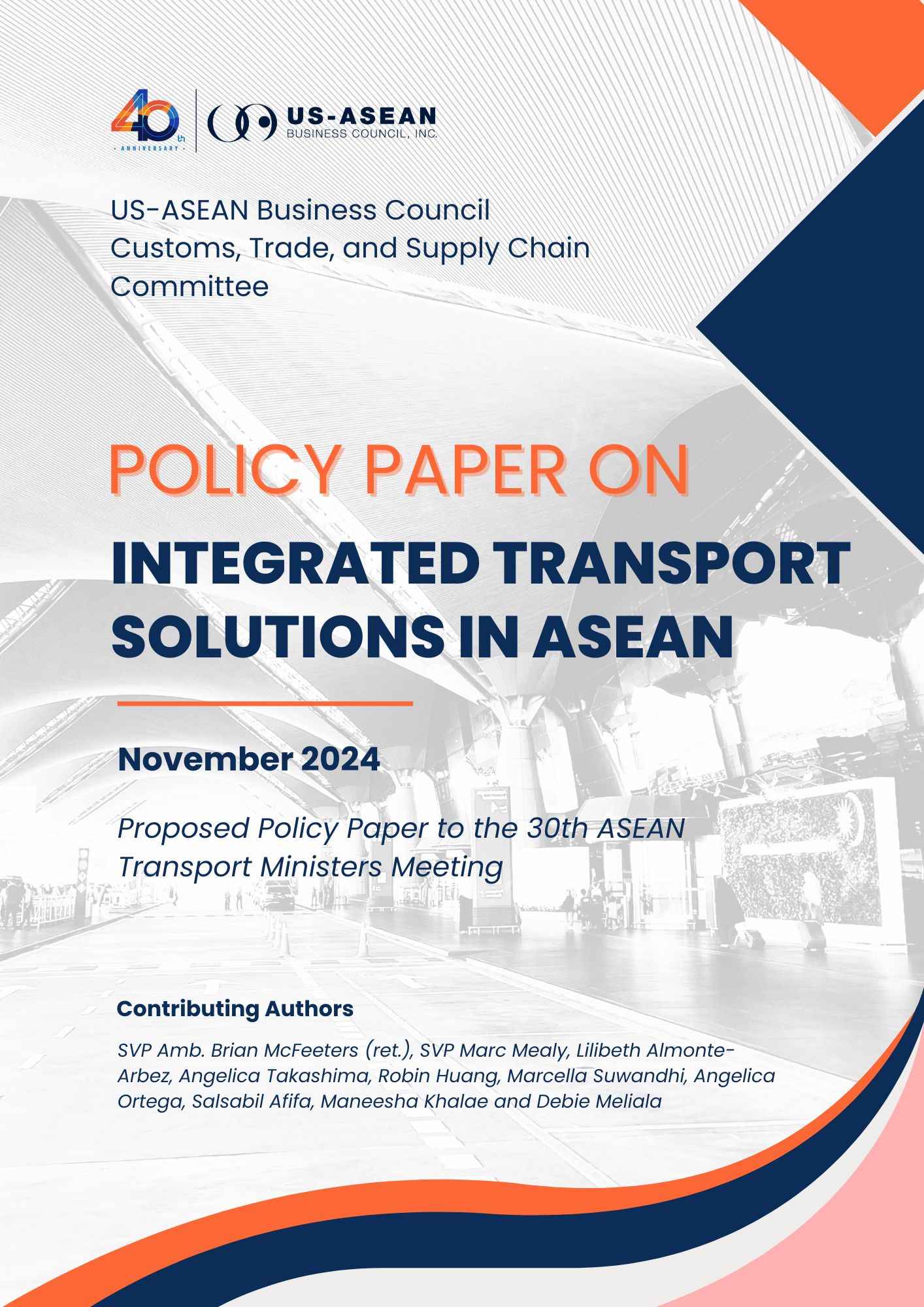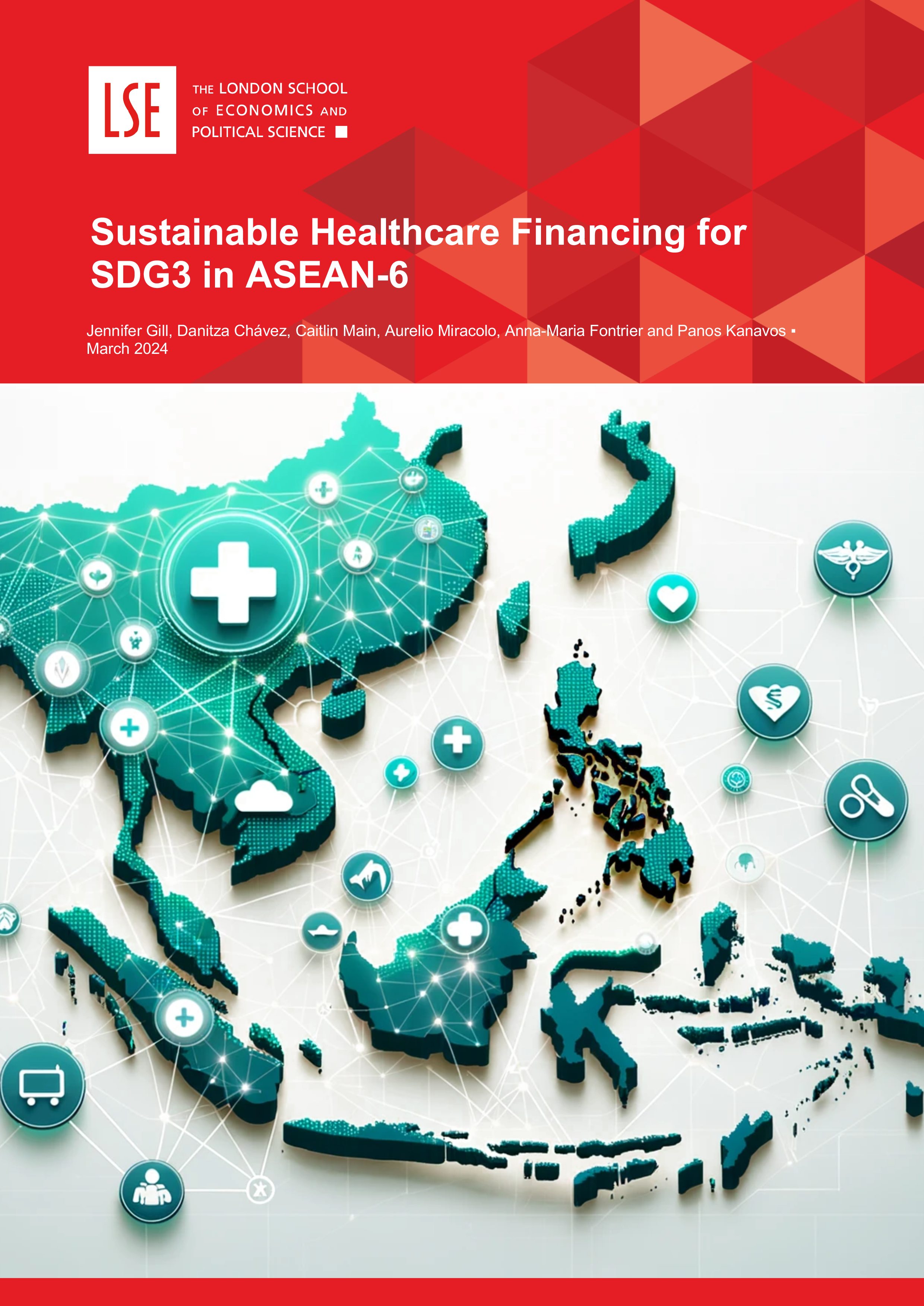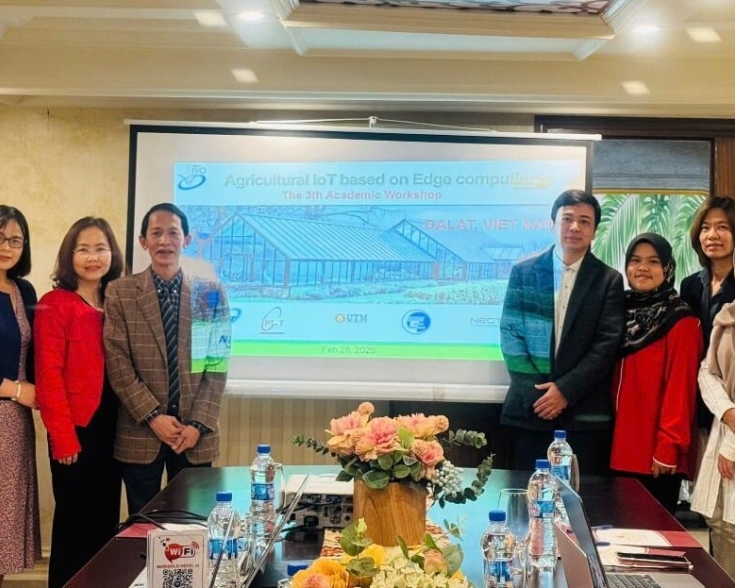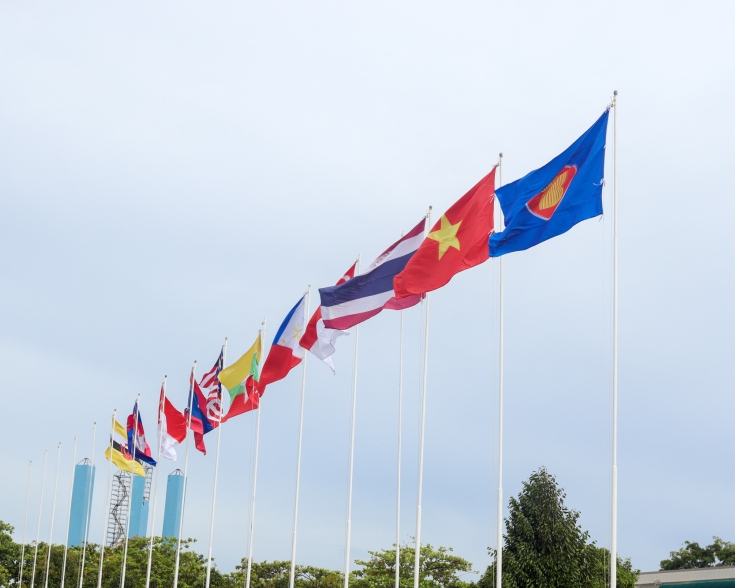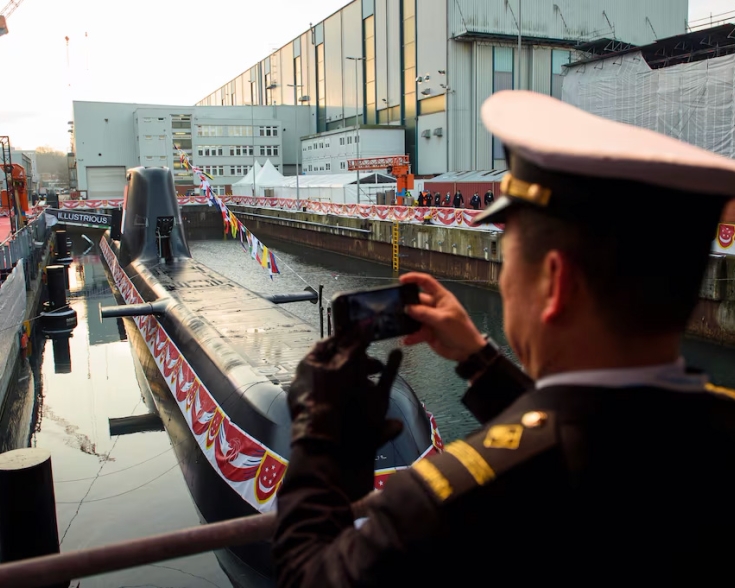ADSOM 2024: Strengthening ASEAN Defense Ties
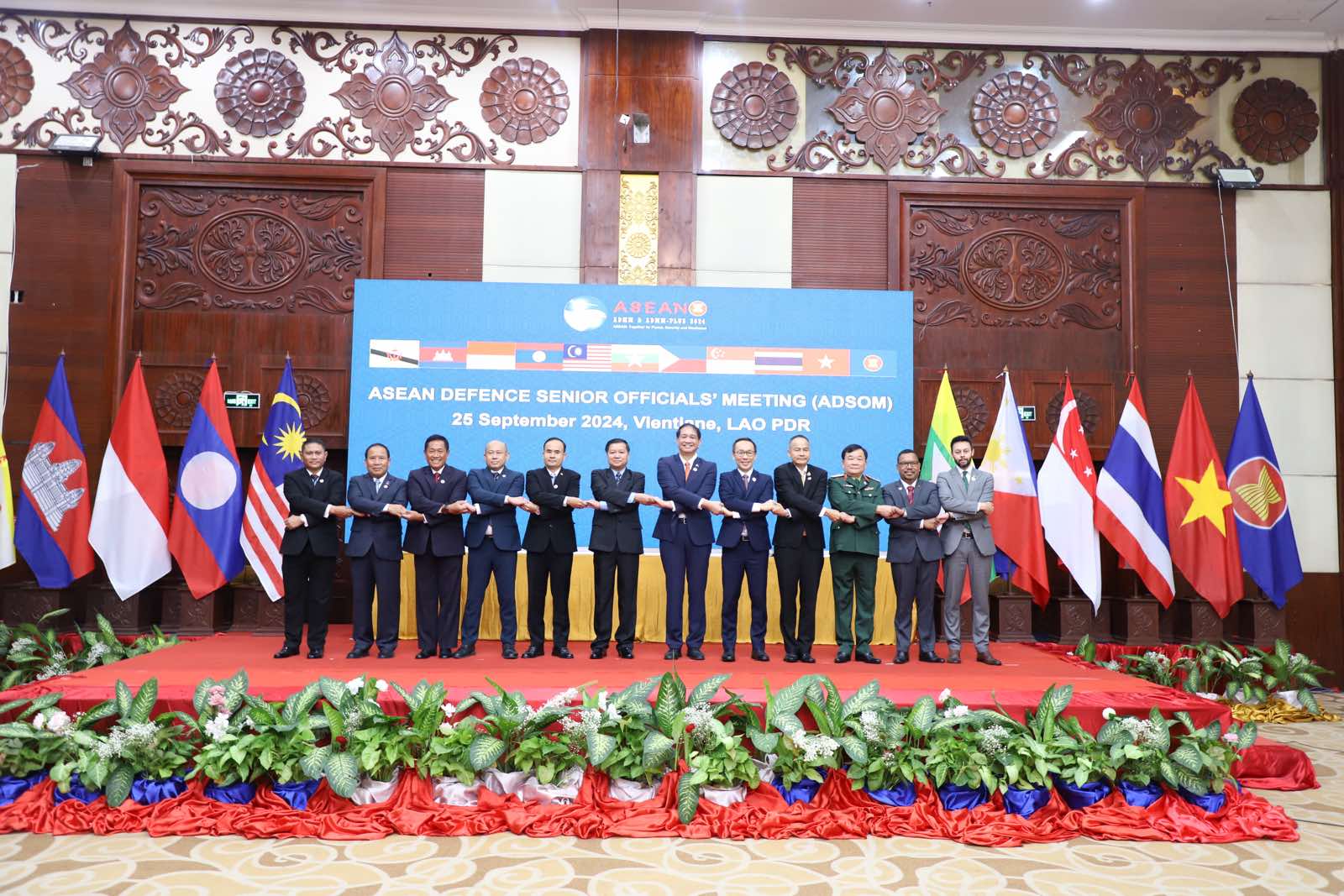
The 2024 ASEAN Defense Senior Officials’ Meeting (ADSOM) and ADSOM-Plus, held on September 25-26 in Vientiane, Laos, marked another step forward in reinforcing regional defense cooperation under the theme, “ASEAN: Together for Peace, Security, and Resilience.” Chaired by Lao PDR, the meetings emphasized ASEAN’s commitment to addressing complex regional security challenges through enhanced collaboration and military capacity-building. The discussions also laid the groundwork for further cooperation with external partners, providing opportunities for U.S. firms to engage with ASEAN’s evolving defense ecosystem.
Key Developments and Initiatives
At the conference, officials reached a consensus on the draft ADMM Joint Statement and agreed to add the Standard Operating Procedures of the ASEAN Military Standing Group on Humanitarian Assistance and Disaster Relief (HADR) to the appendix of Chapter VI of the contingency arrangements. This move enhances ASEAN’s capacity for disaster relief and emergency response coordination across the region. These initiatives provide direct opportunities for U.S. companies to offer logistical support, technology solutions, and expertise in humanitarian operations, in line with ASEAN’s defense modernization goals.
The discussions also covered preparations for the upcoming ADSOM+, ADMM, and ADMM-Plus meetings, as well as the Observer program for the 2024-2027 cycle, offering U.S. firms potential engagement avenues in ASEAN’s defense ecosystem. The Experts’ Working Groups (EWGs) Observership Programme, co-authored by the Philippines, Lao PDR, and Singapore, further opens the door for external partners to contribute to ASEAN’s capacity-building efforts.
U.S. Involvement and Opportunities
The U.S. Department of Defense remains a key dialogue partner, with representation at the ADSOM-Plus meetings. While there were no major announcements from the U.S. DOD during this session, opportunities abound for U.S. companies to engage in ASEAN’s defense modernization efforts. The emphasis on humanitarian assistance, cybersecurity, and peacekeeping operations opens the door for U.S. firms to provide advanced technologies and training programs that align with ASEAN’s capacity-building goals.
Concept papers adopted during the ADSOM-Plus meetings focused on enhancing cooperation in military medicine, peacekeeping, cybersecurity, and HADR. U.S. firms with expertise in these areas are well-positioned to contribute to ASEAN’s defense development, especially given ASEAN’s growing focus on cybersecurity and disaster preparedness.
Looking Ahead
As ASEAN prepares for the 18th ASEAN Defense Ministers’ Meeting (ADMM) and ADMM-Plus in November 2024, the discussions from ADSOM 2024 offer U.S. companies significant opportunities to engage in Southeast Asia’s evolving defense landscape. The success of these meetings, according to Dave Laksono, a lawmaker from Indonesia’s House of Representatives Commission I, provides a “strong foundation for the smooth and successful ADMM and ADMM-Plus 2023.” With a focus on ASEAN unity and collective security, U.S. firms should prioritize collaboration that aligns with ASEAN’s strategic vision, ensuring mutual benefit for both regional and U.S. defense objectives.



